Practitioners of holistic medicine provide patients with an alternative style of medical care, viewing patients as a whole and treating underlying causes of disease and illness - as opposed to individual symptoms.
About Holistic Medicine
Holistic medicine is a field that attempts to treat patients as a whole while taking a balanced approach to health care, caring for the patient’s mind, body and spirit. Those who practice holistic medicine provide care by looking beyond just the symptoms of a single disease or illness, and attempt to treat the underlying cause by treating the patient, not the disease. Holistic practitioners attempt to understand the patient’s illness by analyzing physical, mental, social, environmental, spiritual and nutritional factors that may be contributing to the patient’s condition. Holistic medicine strives to find the balance between the physical, mental, and energetic modalities of the patient.
Holistic medicine practitioners utilize both complementary and conventional therapies to help their patients attain an optimum state of health. In doing so, holistic practitioners may use techniques found in alternative and/or complementary medicine, as well as natural healing. These may include homeopathic and naturopathic techniques that are thought to stimulate the body’s natural healing abilities such as acupuncture, hypnosis, yoga, the practice of Ayurveda, massage, osteopathic manipulative treatments found in chiropractic care and herbal medicines, among other treatments. The term “holistic medicine” is a general, catch-all term and can include a wide variety of techniques and treatments.
Holistic practitioners believe that each person is a unique combination of mind, body and spirit and therefore each patient will require a unique and personalized plan of treatment. By creating a close relationship with the patient, holistic practitioners believe they are able to understand all of the contributing factors to the disease or complications that are having negative effects on the patient. By creating a balance in the patient’s life and introducing a variety of techniques not utilized in traditional medicine, holistic practitioners believe that the body can utilize its natural healing capabilities and return the patient to a complete state of health.
Holistic Medicine Education & Training
The education to become a holistic medicine practitioner largely depends upon the type of care offered and the specific practitioner who is providing the care. For example, medical doctors who provide holistic care have completed an undergraduate degree, medical degree and a residency program – just as any other practicing physician; the differences lies in the manner and type of care provided.
Many physicians practicing a holistic approach may also pursue certificate or other training programs to extend the knowledge and scope of their care beyond that of traditionally accepted medical techniques. For example, an MD who practices holistic medicine may also be versed in natural healing, functional medicine, herbal supplements or acupuncture, among many other complementary and alternative medicine (CAM) techniques.






